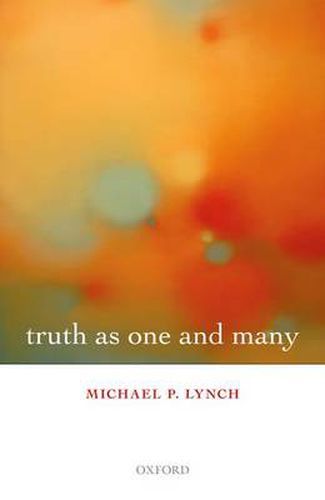Readings Newsletter
Become a Readings Member to make your shopping experience even easier.
Sign in or sign up for free!
You’re not far away from qualifying for FREE standard shipping within Australia
You’ve qualified for FREE standard shipping within Australia
The cart is loading…






What is truth? Michael Lynch defends a bold new answer to this question. Traditional theories of truth hold that truth has only a single uniform nature. All truths are true in the same way. More recent deflationary theories claim that truth has no nature at all; the concept of truth is of no real philosophical importance. In this concise and clearly written book, Lynch argues that we should reject both these extremes and hold that truth is a functional property. To understand truth we must understand what it does, its function in our cognitive economy. Once we understand that, we’ll see that this function can be performed in more than one way. And that in turn opens the door to an appealing pluralism: beliefs about the concrete physical world needn’t be true in the same way as our thoughts about matters – like morality – where the human stain is deepest.
$9.00 standard shipping within Australia
FREE standard shipping within Australia for orders over $100.00
Express & International shipping calculated at checkout
What is truth? Michael Lynch defends a bold new answer to this question. Traditional theories of truth hold that truth has only a single uniform nature. All truths are true in the same way. More recent deflationary theories claim that truth has no nature at all; the concept of truth is of no real philosophical importance. In this concise and clearly written book, Lynch argues that we should reject both these extremes and hold that truth is a functional property. To understand truth we must understand what it does, its function in our cognitive economy. Once we understand that, we’ll see that this function can be performed in more than one way. And that in turn opens the door to an appealing pluralism: beliefs about the concrete physical world needn’t be true in the same way as our thoughts about matters – like morality – where the human stain is deepest.